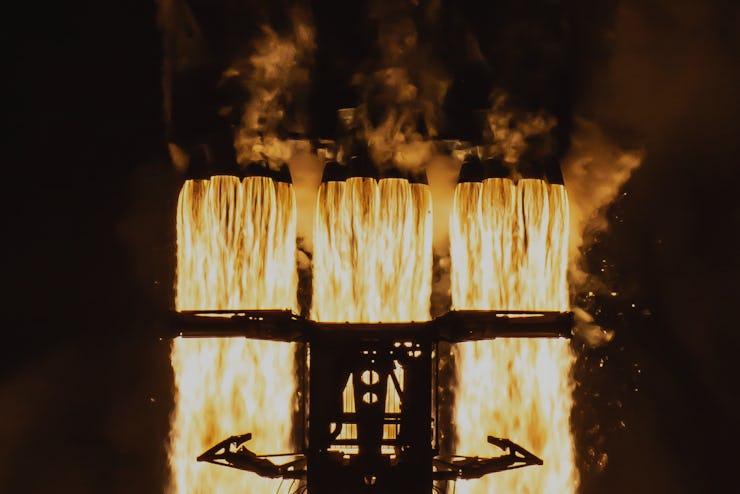Musk Reads: SpaceX Completes 'Most Difficult' Falcon Heavy Launch Ever
Plus, Yandex throws down the gauntlet and Tesla flicks the virtual power plant switch.

Tesla switched on a virtual power plant; Yandex throws down the autonomous driving gauntlet; and SpaceX completes its most ambitious launch yet. It’s Musk Reads #84.
A version of this article appeared in the “Musk Reads” newsletter. Sign up for free here.
Musk Quote of the Week
“Accelerating Starship development to build the Martian Technocracy.”
- Read more about Musk’s Raptor production plans.
Tesla
Tesla switched on a virtual power plant for residents in two states. The new National Grid program lets residents in Massachusetts and Rhode Island support the grid during peak performance. It uses a Tesla Powerwall to act as an energy store for high demand times, reducing the need to fire up dirty coal plants. It follows similar plans in Australia and comes as solar installs are expected to double in the next four years. Read more.
Yandex threw down a challenge to Tesla this week, after its head of self-driving told Inverse that the Russian tech firm is in the top three of the world. Dmitry Polishchuk also claimed that Tesla would need extra sensors to power its full autonomous system. Tesla has notably refused to add lidar to its cars, a position some claim could provide a more futuristic sensor setup. Tesla aims to launch its robo-taxi service as early as next year. Read more.
What’s next for Tesla: Federal tax credits on new Tesla vehicles are set to halve to $1,875 in the United States on July 1. The moment has been described as “when the rubber meets the road.”
SpaceX
Falcon Heavy completed its most ambitious launch yet this week. The launch, which Musk described as the “most difficult ever,” was for the Department of Defense’s Space Test Program-2 mission. Part of the mission included the LightSail 2 CubeSat, which will quietly circle the Earth. Unfortunately, plans to recover the three cores ended with the center core missing its target. Read more.
The company’s Crew Dragon program came under fire this week after the Government Accountability Office published a review of NASA’s Commercial Crew Program. Musk expected to launch the first humans later this year, but the office has warned that both SpaceX and Boeing look like they could slip further. The program is aimed at replacing Russia’s Soyuz rockets as a means of sending American astronauts to the International Space Station. Read more.
What’s next for SpaceX: SpaceX is set to boost production of the Starship’s Raptor engines, producing a new one every 12 hours by the end of the year.
Photo of the Week
Falcon Heavy goes into space.
Falcon Heavy at night.
The Ultra-Fine Print
This has been Musk Reads #84, the weekly rundown of essential reading about futurist and entrepreneur Elon Musk. I’m Mike Brown, an innovation journalist for Inverse.
- Sponsor Musk Reads and get your business in front of a brainy, curious audience that’s motivated to make the world a little better tomorrow.advertising@inverse.com.
- Email me directly at mike.brown@inverse.com, and follow Inverse on Twitter @inversedotcom. Follow me on Twitter @mikearildbrown.
A version of this article appeared in the “Musk Reads” newsletter. Sign up for free here.